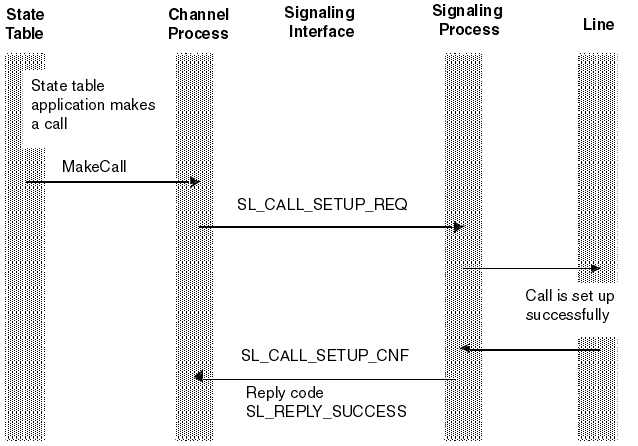Outgoing calls from Blueworx Voice Response specify one or more channel groups: the signaling process is responsible for establishing a call on a channel in one of the requested channel groups. A common channel signaling process must specify support for channel negotiation when it opens the signaling interface.
The channel process does not choose the channel and pack on which to make the call. Instead the SL_CALL_SETUP_REQ primitive has the iChannelNo and iVpackNo variables set to special values. Once the signaling process has established the call, the corresponding SL_CALL_SETUP_CNF primitive should return the allocated channel number and pack number. The signaling process can retry an outgoing call on a different channel, if the first attempt is refused by the network.
The primitives involved in setting up an outgoing call using a common channel signaling protocol are shown in Figure 1.
